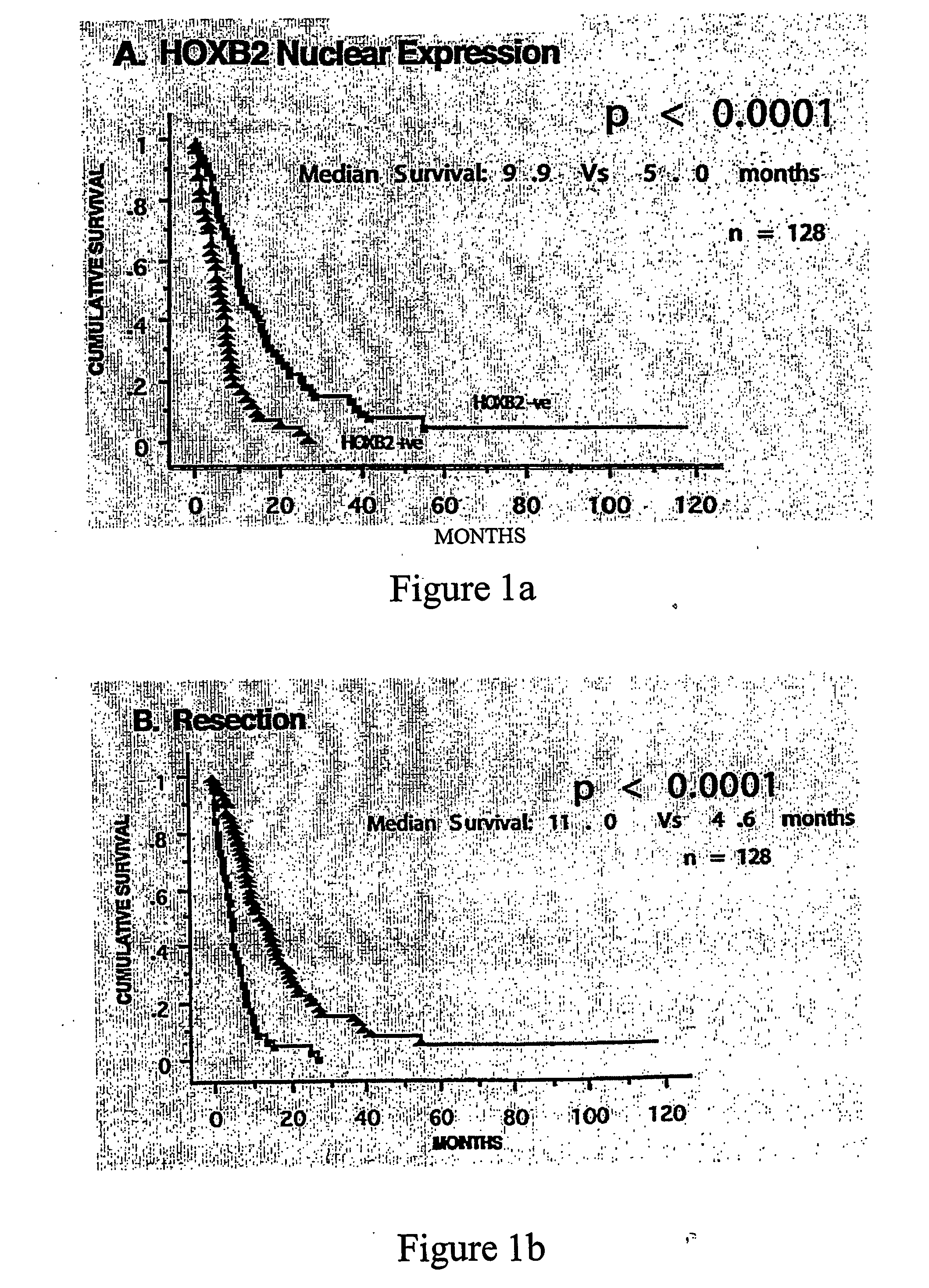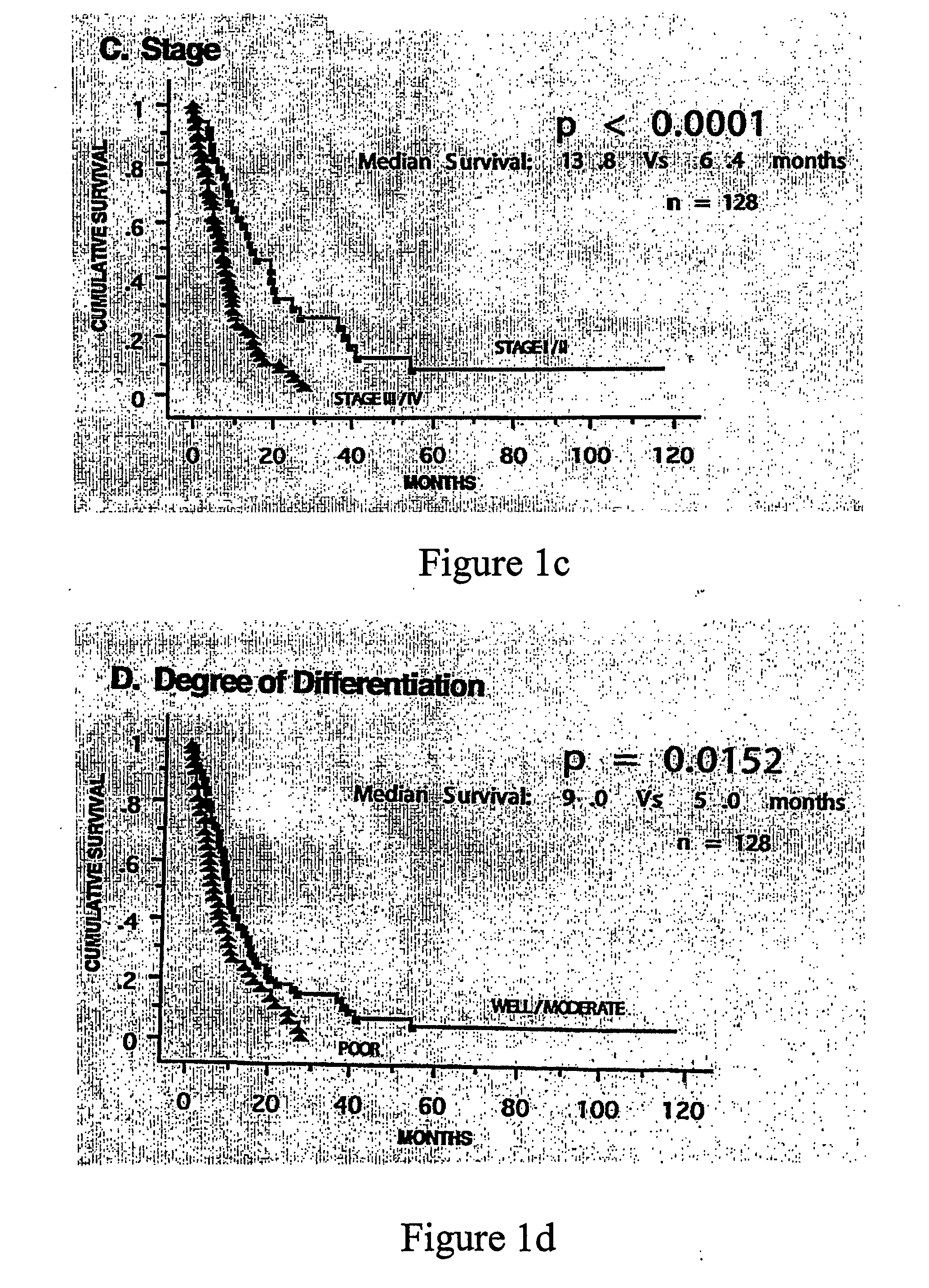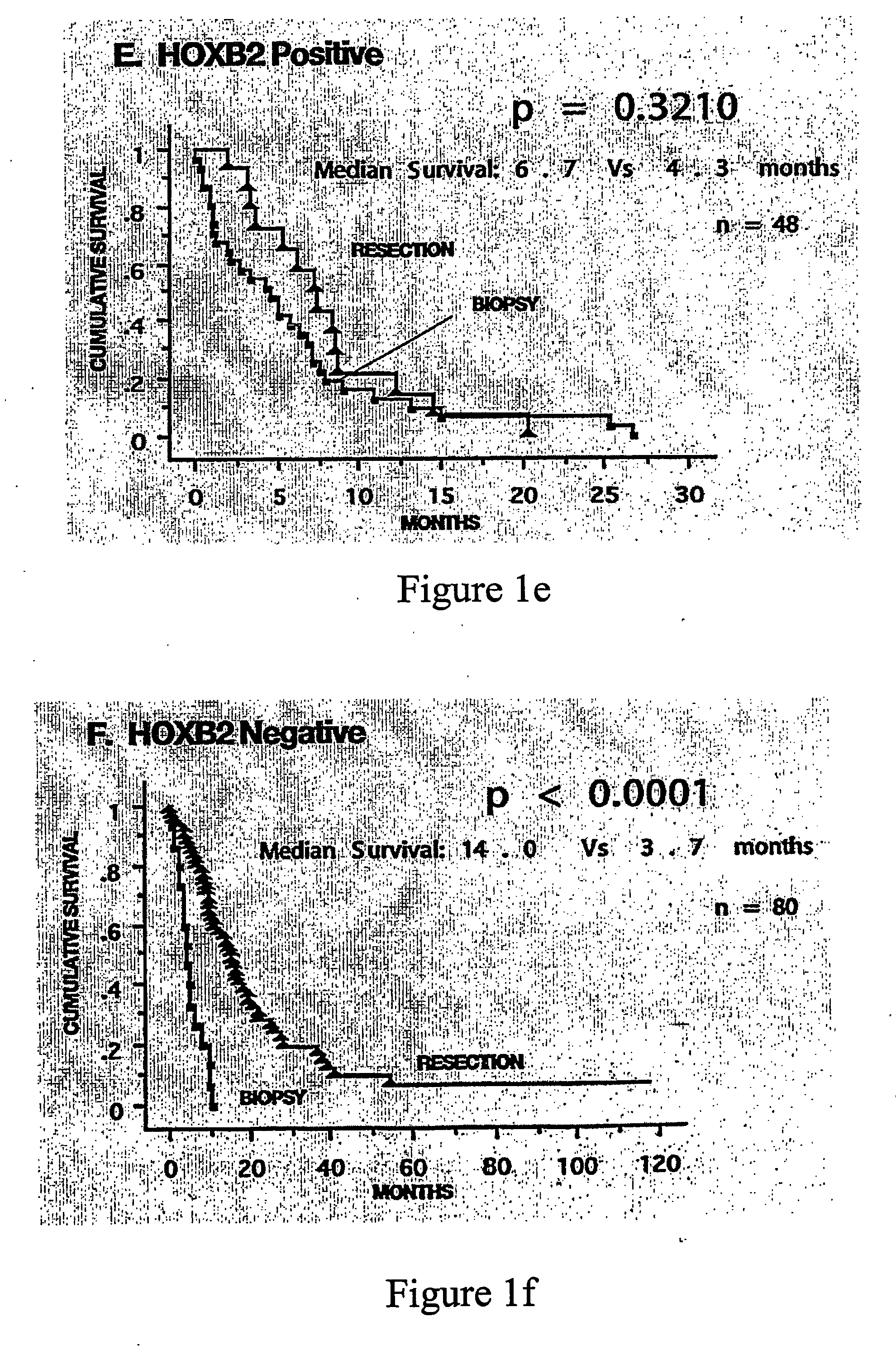Methods of diagnosis and prognosis of pancreatic cancer
a pancreatic cancer and prognosis technology, applied in the field of pancreatic cancer diagnosis and prognosis, can solve the problems of complex western diet, insufficient means of detecting tumours, and increased risk of cancer, so as to improve the specificity of detection
- Summary
- Abstract
- Description
- Claims
- Application Information
AI Technical Summary
Benefits of technology
Problems solved by technology
Method used
Image
Examples
example 1
Gene Expression Profiling to Identify Differentially-Expressed Genes in Pancreatic Cancer
RNA Preparation and Transcript Profiling:
[0687] Total RNA was isolated from 12 pancreatic cancer specimens and 6 matched macroscopically and microscopically normal appearing pancreas from the resected specimens. Biotinylated cRNA for Affymetrix Genechip hybridization was prepared through a single round of reverse transcription with Superscript II (Life Technologies, Maryland) followed by second strand synthesis to create double stranded cDNA. After purification the cDNA was transcribed using a T7 polymerase (Enzo Technologies, New York, N.Y.) and purified (Baugh L R, Hill M, Brown E L, Hunter C P. Quantitative analysis of mRNA amplification by in vitro transcription. Nucleic Acids Research 2001;29:e29). Hybridization cocktails were prepared as per Affymetrix protocol (Affymetrix, Santa Clara, Calif, USA) and quality assured on Affymetrix Test3 arrays, prior to hybridization to Affymetrix HG-U...
example 2
Overexpression of HOXB2 is an Intermediate Event in the Development of Pancreatic Intraepithelial Neoplasia and is Associated with a Poor Prognosis in Pancreatic Cancer
Materials and Methods
Patient Cohort:
[0696] The inventors identified a cohort of 128 patients with the diagnosis of pancreatic adenocarcinoma that underwent pancreatic resection or biopsy between January 1972 and November 2001 from Westmead Hospital, Concord Hospital, The Royal Prince Alfred Hospital and The St. Vincent's Hospital Campus in Sydney, Australia. This cohort represents a subset of a previously described group of 348 patients (Biankin et al., J Clin Oncol 2002; In Press). Ethical approval for data and tissue collection was granted by the ethics committees of each hospital. Archival formalin-fixed, paraffin-embedded tissue from all the 128 pancreata that were resected or biopsied were used to construct seven pancreatic cancer tissue arrays, which contained up to 55×1.6 mm cores per slide. Conventional se...
PUM
| Property | Measurement | Unit |
|---|---|---|
| Fraction | aaaaa | aaaaa |
| Level | aaaaa | aaaaa |
Abstract
Description
Claims
Application Information
 Login to View More
Login to View More - R&D
- Intellectual Property
- Life Sciences
- Materials
- Tech Scout
- Unparalleled Data Quality
- Higher Quality Content
- 60% Fewer Hallucinations
Browse by: Latest US Patents, China's latest patents, Technical Efficacy Thesaurus, Application Domain, Technology Topic, Popular Technical Reports.
© 2025 PatSnap. All rights reserved.Legal|Privacy policy|Modern Slavery Act Transparency Statement|Sitemap|About US| Contact US: help@patsnap.com



